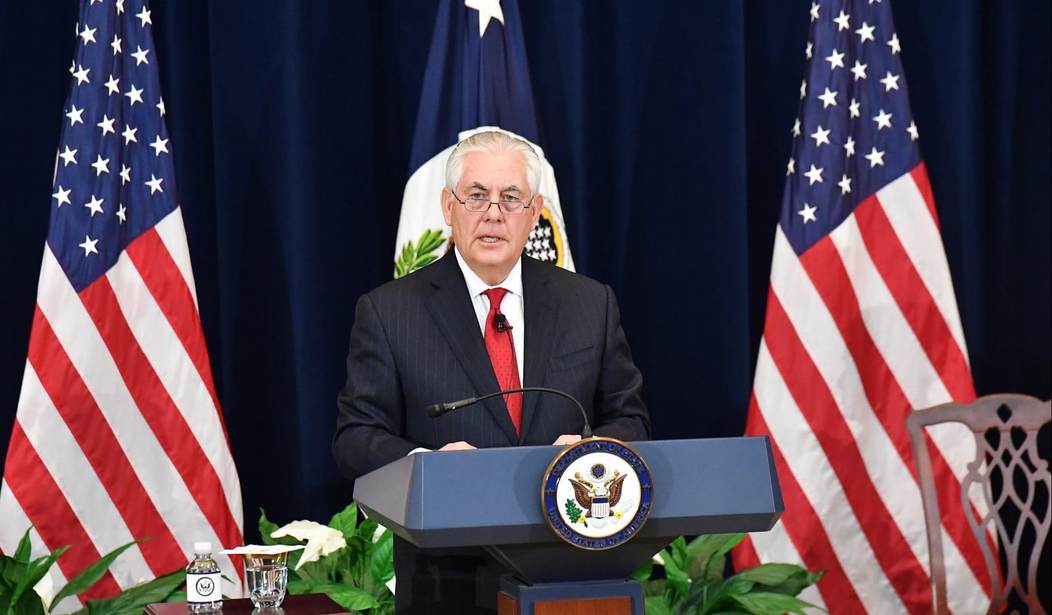WASHINGTON – By downgrading the State Department’s Cyber Coordinator Office, Secretary of State Rex Tillerson opened the door for Russia and China to gain a stronger foothold on the digital battlefield, the former cyber coordinator told Congress last week.
The administration announced the downgrade in August. Former cyber coordinator Christopher Painter, who now serves as global commissioner for the Stability of Cyberspace, told the House Foreign Affairs Committee on Feb. 6 that in the midst of the State Department reshuffling there “was a lack of understanding of the importance of this issue.”
The decision to downgrade his office, which remains staffed but is now headed by a lower-level deputy assistant secretary, was made as part of a larger department reorganization, Painter said. The administration had been trying to get rid of “all these special envoys, all the direct reports to the secretary,” Painter explained. He concluded that the downgrade sent an “unfortunate” signal.
“Quite frankly, and I’ve talked to a lot of our allies and others about this, and I think it sends a message that they said before to our adversaries that this is an opportunity for them to flex their muscles and try to influence even more than they have in the international debate,” Painter said. “If we’re not there in a leadership role, it’s a signal that this is not as important an issue at the State Department.”
Following a brief recess for voting, Chairman Ed Royce (R-Calif.) interrupted the hearing to announce that Tillerson had delivered a message to the committee. In a letter, Tillerson announced plans to create a bureau for cyberspace and digital economy headed by an assistant secretary.
“I think this is a positive step, but we’re going to continue to work with the department and continue to work with our colleagues on the Senate side to pass the legislation we passed out of this committee,” Royce said.
The House in January passed the Cyber Diplomacy Act, a piece of legislation that calls for the exact action that Tillerson is now taking: a reprioritization of a cyber bureau headed by a Senate-confirmed assistant secretary. The bill was introduced by Royce and Ranking Member Eliot Engel (D-N.Y.).
“It falls to our diplomats to help ensure the world rejects this limited version of cyberspace and that the American vision of an open, secure and innovative internet wins out over George Orwell’s premonitions,” Royce said in his opening remarks.
The chairman also noted recent cyber attacks and manipulation from China, Russia, North Korea and Iran. Chinese hackers in 2015 stole personnel files from 20 million current and former federal employees, while North Korea in 2016 waged a cyber attack against hospitals in the UK and international shipment entities in India. The Russians, for their part, have tried to exploit cyberspace with attacks on Ukraine and Estonia, Royce said. Finally, Iran has flexed its authoritarian control over digital access in an attempt to block protests and dissent.
Prior to the downgrade, Painter said that his former office had a very close working relationship with the White House’s National Security Council. He specifically cited strong collaboration with White House Cybersecurity Coordinator Rob Joyce and Homeland Security Adviser Tom Bossert and explained that the group was continuing to make progress on these issues. The Cyber Coordinator Office continues to work through these problems, Painter added.
Rep. Karen Bass (D-Calif.) asked Painter what action the U.S. needs to take in preparation for the 2018 midterms. He responded that the U.S. needs to do “everything” it can because the Russians and other actors will be trying to get involved.
“If the goal is to sell chaos, which I think it is, you don’t know which party is going to be affected,” he said. “It’s going to be something where they’re going to come back, they’re going to try to create chaos.”
If the U.S. diminishes the ability to defend in this area, at the FBI, the Justice Department and within the intelligence community, “that’s shooting ourselves in the foot.” Painter has recommended the administration make a clear declaratory statement, which he believes will at least get the Russians to think twice about attempting to improperly influence the political process. The most important thing, he added, is for cyber specialists to have proper tools and resources.









Join the conversation as a VIP Member